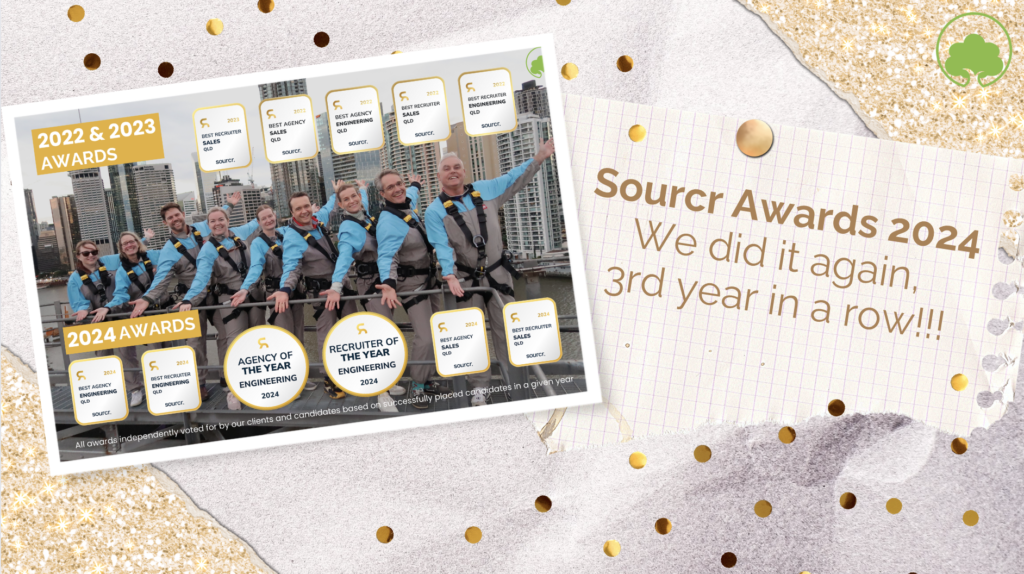We work with many leaders at all levels of organisations. Often, they’re so busy managing their business, or area of the business, that they neglect their most important asset – their people.
Leading people effectively is a skill that’s often developed over years and years of experience, usually with a few mistakes along the way. But the one thing that separates effective leaders from the rest is the ability to learn from those mistakes and improve as they go.
This week, we’ve highlighted some of the most common mistakes we’ve seen leaders make – so you don’t have to make them yourself.

1. They lack self-awareness
Many leaders think they’re emotionally intelligent and know how to work effectively with people. The problem is, we’re actually quite likely to overestimate ourselves and think we’re much more emotionally intelligent than we really are. Studies have shown that on average, people place themselves several points higher on scales of EI than the people who work with them do.
So, while some leaders might think they know themselves, they often don’t see themselves objectively. They might have favourites amongst their team members, or be difficult to work with, or respond poorly to criticism without being fully aware of it.
One of the best and most valuable skills a leader can have is a sound, realistic understanding of themselves and the capacity for self-reflection. They’re able to see themselves as they really are and reflect on their own behaviour: what they did well, what they didn’t do so well and how they can improve in future.
2. They focus on tasks rather than results
Many leaders get so caught up in the myriad tasks they need to perform, they lose sight of the bigger picture. As Alec Mackenzie, author of The Time Trap: The Classic Book on Time Management wrote, ‘Nothing is easier than being busy, nothing more difficult than being effective.’
Managers who do this tend to focus on the tasks they feel need to be completed right now. There’s always a stack of papers on their desk or in their in-box. And they’re likely to look tired and stressed and be difficult for their employees to pin down.
In this case, leaders need to stop and ask themselves how what they’re doing is contributing to results for the business. Is it busy-work? Could someone else do it? Does it ultimately bring about the outcomes the organisation is seeking?
3. They motivate through fear
Fear can certainly be a great motivator. But in the workplace, it’s possibly the worst motivator of all. Leaders who take a ‘you must perform, or else’ style of management are communicating clearly to their teams that they don’t trust or believe in them. Why else would they add in the threat of punishment, or the fear?
Employees take this kind of message to mean that their leaders believe they’re inherently incapable of performing well. That without the fear of a negative consequences, they don’t have what it takes to do a good job and perform at their best.
And this fear can be extremely debilitating and demoralising to employees. While people might do as their leaders have asked – after all, they probably want to keep their jobs, at least until they find something better – they’re not going to grow, thrive and do their best for the organisation simply because they feel they have no other choice.
4. They don’t look at the people on their team
Even if leaders are performing effectively themselves, they need to regularly take a thorough look at the people on their team. It can be easy to get comfortable and believe that their team is functioning well, but is it really?
They need to continually analyse how their teams are performing: do they have the right people? Are those people in the right roles, or would they be better off shifting slightly? Are they capitalising on everyone’s strengths? Are people collaborating well?
In other words, do they have the right people, in the right jobs, doing the right things?
5. They keep poor performers around
Unfortunately, despite your best efforts, some employees are never going to perform as well as you need them to. And while it’s important to be compassionate, it’s just as important to be able to make difficult decisions for the good of the business.
Leaders have faith in their people and often care about them deeply. For this reason, they might feel that it’s their responsibility to help someone grow and improve. And it can be – up to a point. Ultimately, only the employee themselves can make the changes they need to bring their performance up to par.
If someone’s not able to produce the results you need, you owe it to the organisation and the rest of the team to let them go. They’ll find a role that’s a better fit for them, and your team and business won’t suffer from poor performance.
6. They don’t manage morale and momentum
Leadership expert John Maxwell recognises that nothing is more fragile than morale and momentum in an organisation.
Morale matters. Few things are worse than a team that feels like it’s losing. People feel lethargic, unmotivated and uninspired. They’ll turn up because they have to, not because they want to.
On the other hand, when a team has high morale, small victories seem sweet and bigger ones make them feel close to invincible. They’ll feel energised and enthused, and see potential rather than problems. They’ll build momentum and feel able to try out new concepts and ideas to move the business forward.
Momentum is also critical. As Maxwell likes to say, without momentum, even the smallest obstacle can stop teams from moving forward. But once they have it, they can be unstoppable.
7. They don’t delegate effectively
This is a classic that can manifest in various ways. It could be micro-managing: spending too much time overseeing what their people are doing and not trusting their people enough to let them take the reins. Or it could be thinking that no-one else can do the job as well as they can, so they try to do everything themselves and spend too much time on tasks and not enough time on leading their teams.
Poor managers might feel that it would take longer to explain how to perform a task than it would to do it themselves. Or that they’ll be losing control – and possibly even recognition – if they hand over their responsibility to someone else.
At the end of the day, they’re denying themselves and their teams the increased efficiency, flexibility and teamwork that can arise from effective delegation. And their teams can feel as if their manager is too busy to be approachable and worse – that their manager doesn’t trust them enough to pass tasks on to them.
8. They don’t praise and reward
Poor leaders believe that getting paid and keeping their jobs should be enough for their people. After all, there’s plenty of people out there looking for work, right? And if they’re already paying someone to do the work, why should they pay them more just because they’ve done it correctly?
They don’t understand that showing people appreciation for a job well done goes a long way to improving motivation and morale. Or that every big win is a culmination of small wins that should also be recognised, to encourage momentum and inspire others to do the same.
They also don’t realise that people thrive on recognition. Many studies have shown that recognition from a manager is one of the strongest motivators in the workplace and that lack of recognition is, on the other hand, one of the leading causes of disengagement.
Good leaders understand that recognition can be as simple as a thank you note or praise in front of the rest of the team: it’s all about letting the employee know that their manager knows, respects and appreciates the effort they’ve made. And they know that rewards don’t need to be financial – although that is one option – and that they go a long way to helping employees feel that their hard work is making a valuable contribution to the business.
Being an effective leader with the right people behind you can be difficult. At ArcTree, we’ve helped many leaders and teams get a better understanding of their strengths and development areas to become more productive, engaged and motivated.
Want to find out more? Get a free evaluation for yourself, or up to 2 of your team members and find out how you and your teams can ramp up results quickly.











